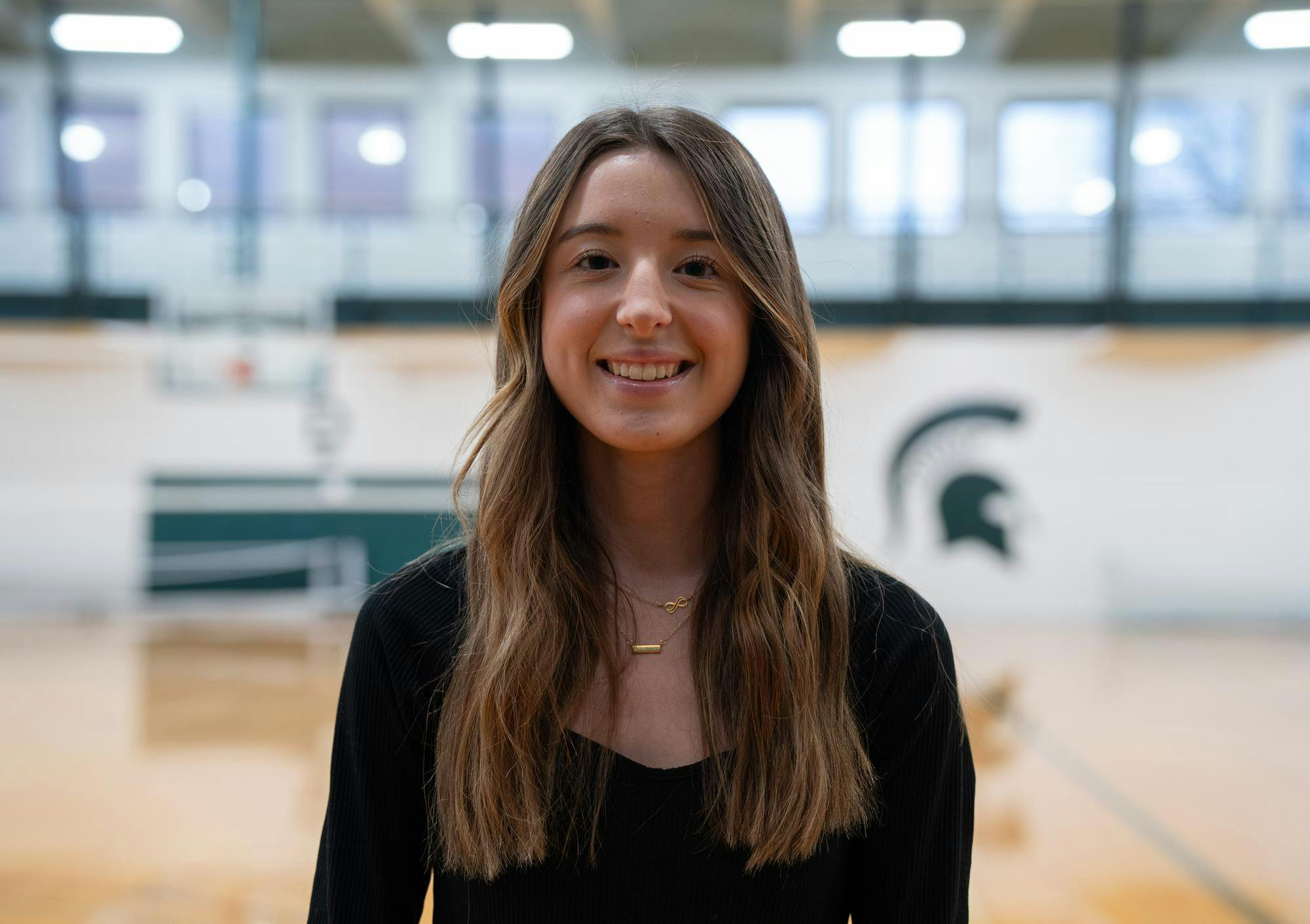Perhaps no job on campus is as psychologically taxing as that of an intramural referee.
"We ask students to run hard. We ask students to sweat. We ask students to get yelled at," Assistant Director of IM Sports Ross Winter said. "That's part of the gig, right? Nowhere else does that happen."
There has been a national shortage of referees in youth and high school sports since COVID-19, Winter said, and that trend has carried to MSU’s IM sports program. Whereas, in the past, IM basketball used 10 courts on any given night, this year only six will be used due to a shortage of referees.
"It’s because of situations where players and fans and coaches in the stands yell and cuss and scream at referees," Winter said. "That’s why there’s a national shortage."
Kinesiology freshman Andrew Bossler started refereeing youth soccer four years ago and has learned to not let heckling from players and fans affect him. Still, he described the feeling when players start shouting at him over a contested call as "heart-dropping."
Bossler, an athlete himself, said he understands that players can get caught in the heat of the moment during a game and become frustrated with a referee. However, he said he runs out of patience when players are still arguing calls once the game is over.
"That’s where I think I kind of draw the line, like, 'dude, it’s IM soccer. We’re not pro referees out here,'" Bossler said.
Bossler said he thinks players generally lack respect for IM referees and take them for granted.
"If we’re not out here doing our job, you guys aren’t gonna be able to play the game," Bossler said.
Some universities’ IM sports programs have tried out non-officiated competitions, Winter said, but that is not something he is "willing to entertain at this time." He said referees need to be present to give structure to the game and resolve conflicts among players.
Kinesiology freshman Julia Kelleher, a life-long athlete, started refereeing soccer this fall and refereed her first IM basketball tournament in December.
Kelleher, who aspires to one day work as a sports physical therapist, said she sees refereeing as key work experience as employers look for candidates who have previously worked in sports-related fields.
"If they see that you’re doing stuff with sports, they’re going to see it as a positive," Kelleher said.
But, she said, refereeing IM sports is not without its challenges. While already a difficult job on its own, she said, it can be even more stressful for women referees.
Kelleher said she is one of two women basketball referees out of approximately 40 referees in the IM basketball program. She believes the fear of being yelled at by male players keeps women away from refereeing.
"I know there’s a bunch of girls (at MSU) that have played for a long time, but I think girls are just scared (to referee)," Kelleher said.
Kelleher said that if more women became IM referees at MSU the culture of IM sports would improve.
"If (men) just saw more girls refereeing and making correct and fair calls, I feel like they’d be like, 'okay, well then they know what they’re doing,'" Kelleher said.
IM referees will inevitably make mistakes, Kelleher said, especially in situations where a play happens fast and a referee doesn't have a clear view.
"There's only a small period of time where you can go back on your calls, and you don't wanna keep going back on your calls because then people aren't going to trust you as much," Kelleher said. "Even we know we make mistakes, but you just have to be confident and be like 'I called the foul, I have to go report it to the table, and just move on and try to learn from your mistakes.'"
Support student media!
Please consider donating to The State News and help fund the future of journalism.
"We're human too, you know," Kelleher said. "We're trying our best."
Winter said that referees making incorrect calls occurs at all level of competition.
"We've got really good referees that work over at the Breslin Center," Winter said. "They're really, really, really, really, really good. I'm talkin' 10 to 20,000 hours of practice. They've worked high level competitions for 25 to 30 years, and they still get plays wrong and they still get yelled at."
The hyper-masculine culture in some IM sports leagues that Kelleher identified is not lost on Winter.
"We’re in a world of 18 to 22-year-old, testosterone-driven individuals," Winter said. "Everyone thinks they’re right, and everyone is yelling at the uniform."
Despite the challenges that come with the role, Winter said the job of IM referee is the "best job on campus" in terms of the "transferable skills" that students learn and can take with them in future careers.
Being able to think on one’s feet, communicating clearly, conflict resolution and managing emotions are all skills that are developed through refereeing, Winter said.
"Referees getting the transferable skills that they develop, that they’re going to take with them outside of officiating and into their jobs — that’s our driving force," Winter said. "That’s why we’re here."
Discussion
Share and discuss “Intramural sports referees: When getting yelled at is part of the gig ” on social media.







